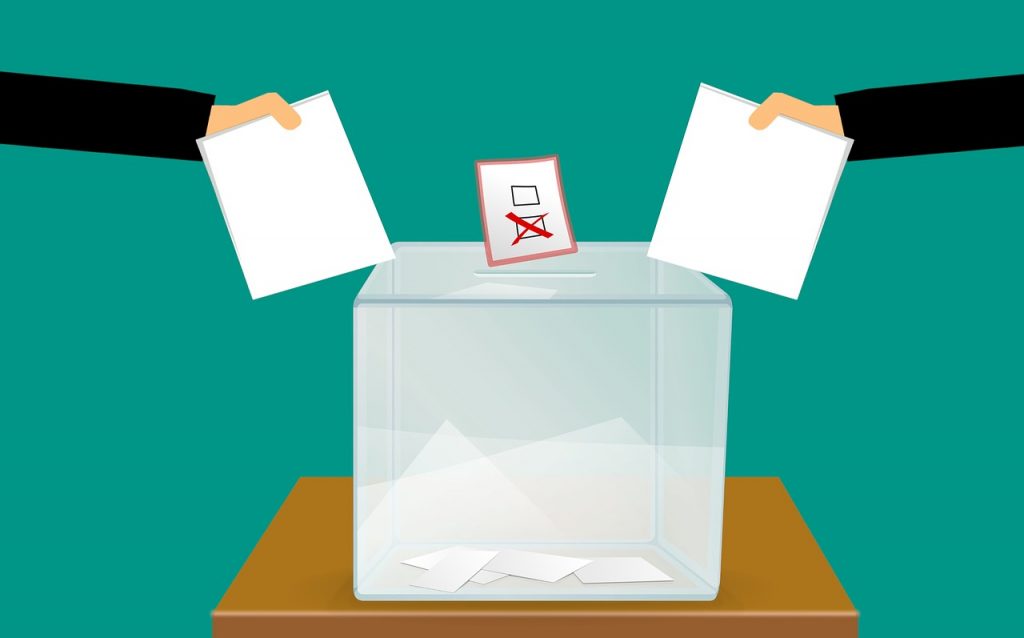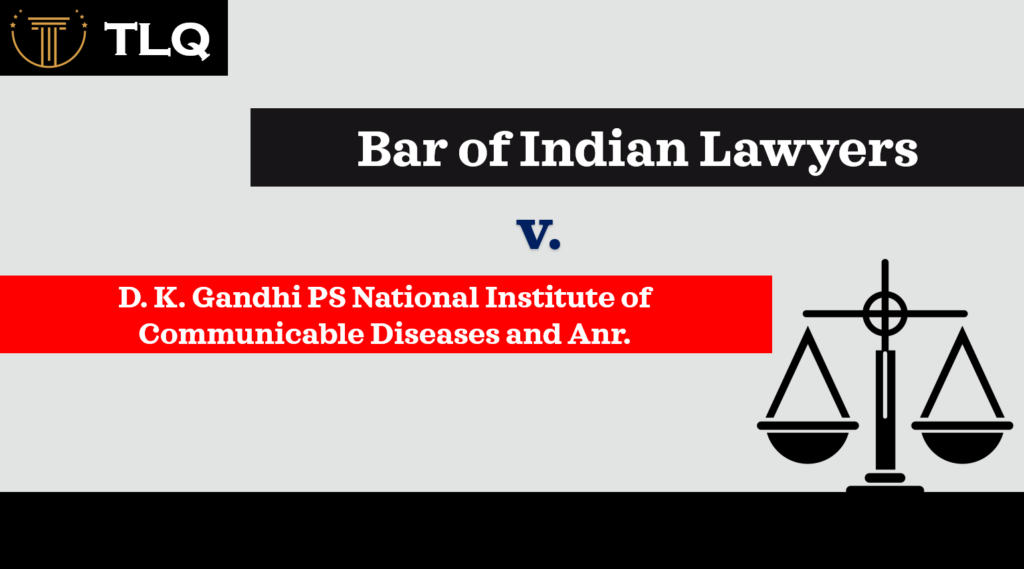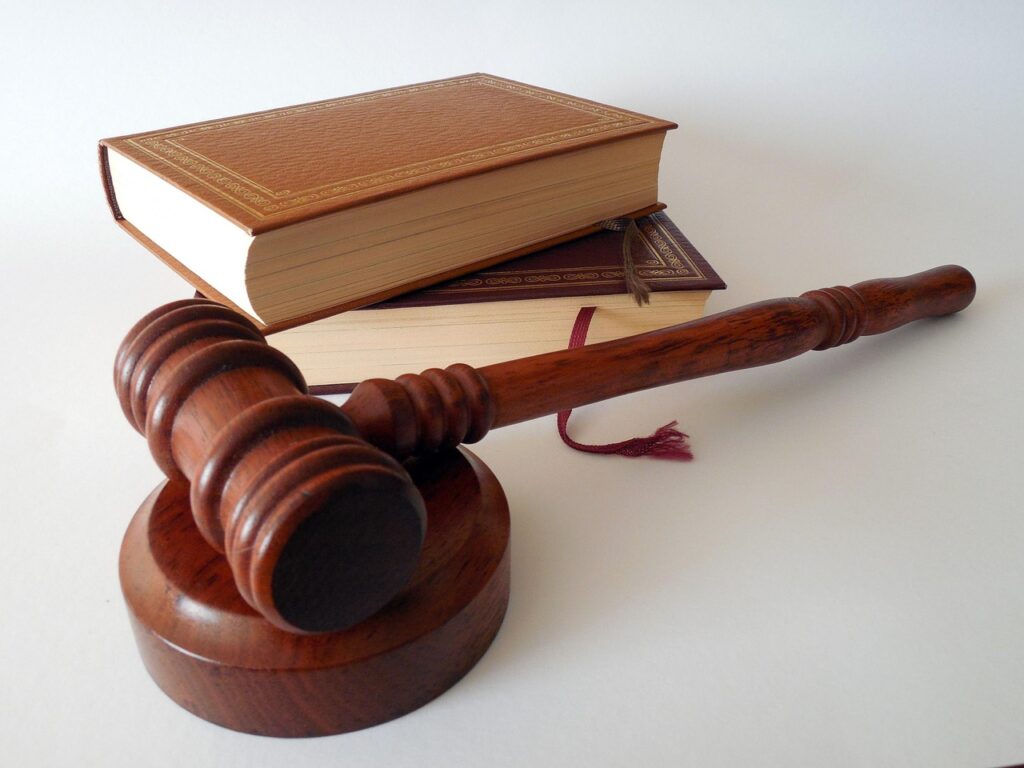Published On: 15th June, 2024

Authored By: Abhishek Varshney
IFTM UNIVERSITY, MORADABAD
Abstract:
This article will analyze the role of electoral reform in making India a vibrant and sustainable democracy in the world. With time, the Indian Election Commission faces a number of difficulties in advancing the country’s democracy.
Still, India’s democracy has thrived successfully. Many adjustments to the election reforms have been made in order to achieve this enormous achievement.
This article will analyze these challenges faced by India. Casteism, communalism, hate speech, and populism are the main threats to India’s democratic system in recent times.
This article will analyze how the electoral reforms have helped to tackle this kind of politics of winning elections in India.
Keywords: Electoral reform, Democracy, Populism, NOTA, Electoral bond
Introduction
India is the biggest democracy in the world. Being the largest democracy in the world, it is common that the government in the country will be elected by its citizens. It is very much needed to have the people participate in the governance. So, how will we ensure people’s participation for this we will have to ensure the information regarding government work should be imparted to the people. Information is the key to democracy. India with 1.4 billion populations of almost 900 million people participate in the 2019 election through the electronic voting machine. A democratic country means citizens exercising the power to elect their leader. As a result, elections become essential to India’s thriving democracy.
To conduct a free and fair election with transparency is the need of a vibrant democracy. Up until the fourth general election in 1967, there had been no significant modifications to the Indian electoral system.
The need to make necessary changes in the electoral system appeared first time in 1971 and thus from that, many changes were made in the electoral system. In this essay, I’ll examine why election reforms are necessary to turn India into one of the world’s most dynamic democracies. Why we need to have changes in the electoral system.
Electoral reforms in India
Having a free and fair electoral system to hold transparent elections and fortifying the existing ones to improve and boost their effectiveness are both components of electoral reform.1 This could be successful only if there is coordination among the people, political parties, and electoral machinery at all levels.2 Since 1971 many reforms have been made in the electoral system. They are the Tarkunde Committee Report of 1975, the Goswami Committee Report of 1990, the Election Commission’s recommendation in 1998, and the Indrajit Gupta Committee Report of 1998 bringing major recommendations in the electoral system. A few reforms have been accepted by the government like lowering the age of voting from 21 years to 18 years, the amount of security deposits increase from Rs.500 to Rs.10,000 for general constituencies. For the reserved constituencies, it was increased from Rs.250 to RS. 5000, the introduction of electronic voting machines, and making the candidates from the Lok Sabha and State Assemblies declare their criminal background, economic status, and educational qualifications. In spite of everything, there is still more work to be done to improve the integrity and transparency of voting procedures in order to strengthen and enhance our democracy. Money power has played a measure role in elections and is working even today. A suggestion to curb this money power is to provide state funding to the candidate to reimburse their poll expenses. States such as France, the United States, Canada, Israel, Germany, and others have implemented similar policies, whereby a political party that achieves a minimum percentage of votes cast is eligible for a subsidy.
Muscle power is the other tool by which voters are influenced.
Why Electoral Reforms in Present Times
Today, there is a stronger need than ever for electoral reform. Today, India’s political culture is tainted by populism, sectarianism, jingoism, and confrontational politics. The Election Commission of India needs to curb these flaws in the elections. The use of money power to entice the voters with short-term benefits is problematic for a healthy democracy. Some of the major challenges before the Election Commission of India are as: –
Populism and Elections
Populist leaders make people think of them as the eradicators of their all perils. They portrayed themselves as their messiah, protector of the masses, and panacea for their all perils. They are often against the establishment. Prime Minister Modi used the term Revadi Culture for promises made by the populist leaders before the impending elections. He termed the Revadi Culture very dangerous for the development of the country. Modi cited the traditional North Indian treat “Revadi,” which is frequently given out during festivals, as a metaphor for the benefits that the various political parties claim they will provide in exchange for their share of the political power. According to Modi, efforts are being taken to undo the tradition of using Revadis to win votes. Airports, defense corridors, and motorways are not built by Revadis. We need to remove this Revadi Culture from the healthy democratic system. Modi’s aim was to target the parties that had been resorting to populist ideas before the elections.
The Indian Election Commission is ill-prepared to handle freebies, but it does have a consultation paper scheduled that will outline the parties’ stated costs and how they plan to cover them before the assembly election. It implies that citizens must be informed about the benefits that the parties have promised. The goal is to provide a monetary and material quantification of the assurances. ECI is planning to bring the topic of financing and planning into the ambit of political discourse. There are no such laws or legislation to define freebies or welfare. Cases are pending before the Supreme Court of India for hearing regarding these populist promises. In this situation, the electoral commission’s function becomes even more important. As a result, the populist leader’s and the party’s electoral promises are vulnerable to not having a free and fair election, according to the Indian Electoral Commission, which claims it cannot restrict parties from making promises.8 It is now necessary to pass legislation along the lines of the Fiscal Responsibility and Budget Management Act (FRBMA, 2003), which caps the fiscal deficit. If such kind of cap is introduced on populist announcements based on the proportion of budgetary resources of a party. This helps in leveling the playing field and putting a check and balance on the populist measures. It will also aware citizens not to fall into the fake promises made by the different political parties.
Thriving of Secret Bonds: Electoral Bond
Electoral bonds are secret bonds based on promissory notes that can be bought by an individual and companies from the State Bank of India for donation to political parties. This electoral bond bought from the bank didn’t bear the name of the donor. This scheme was introduced by the Minister of Finance Sri Arun Jaitley in 2017 and was notified in 2018. The aim behind these bonds by the government was to eradicate the menace of unaccounted money coming into the country’s economy. The government opines that it will make the political donation transparent. Under this scheme, bonds are available to be bought by any SBI bank in the multiples of Rs 1000, Rs 10,000, Rs 1 Lakh, and Rs 1 Crore and be bought through a KYC-complaint account. Any party registered under Section 29A of the Peoples Act, 1951 (43 of 1951) and having secured at least one percentage of the votes polled in the recent election and the state election is given a verified Account Number by the ECI. The donor can donate a bond to the party of his choice. Political Parties can cash the bond in 15 days. These bonds put a series of questions regarding the transparency of the Election process.9 From March 2018 to April 2022, over 1800 bonds have been bought amounting to Rs 9,800 Crore as per Association for Democratic Reforms reports. Among all the bonds donated to the different political parties, the biggest share goes to Bhartiya Janta Party worth Rs 1450.89 crore.10
The Election Commission of India is worried about the electoral corruption that has taken place due to the anonymity of these electoral bonds. EC has raised its objection regarding the government’s decision on electoral bonds and filed Counter- Affidavit. EC has raised its concern regarding opaqueness in the political funding. EC didn’t find the amendment made in Section 13A of the Income Tax Act, which grants anonymity of the electoral bond donors, making voluntary donations over 20,000 INR. Change in section 236 of the Finance Act a provision added to the Finance Act under Section 2(1)(j)(VI) of the Foreign Contribution Regulation Act,2010. This Act allowed the contribution received from those foreign companies having the majority stakes in the Indian Companies. The election commission is worried about influence of the foreign companies in moulding elections in India. The Finance Act of 2017 was also modified under Section 135 of the Finance Act and the corresponding Amendment in Section 31(3) of the RBI Act 1934. This finance Act allowed to amendment RBI Act so as to allow Central Governments to have the power to authorize any Scheduled bank to issue Electoral Bonds without being reviewed by the RBI. These are current challenges faced by the ECI in India.
Legislative Measures
Some of the measures taken by the legislature to curb the malpractices through legislative measures are as; under Rule 90 of the Conduct of Election Rules, 1961, a candidate contesting Lok Sabha polls can spend up to 70 lakhs and Rs 28 lakh in assembly election Rs 28 lakh, depending on the state in which he/she contest. A private member’s bill was introduced to parliament which intends to sway the cap on election spending by the candidates. The idea behind this move was that it would encourage the candidate to report the spending in the election. In 2003, a law was passed after the Tehelka scam by the parliament. According to this law donations made to political parties will be 100% income tax-free for donors. The Election Commission issued a statement in 2019 that banned the broadcasting of exit poll results before the final phase of the election. The ambit of the vote through the postal ballot has been increased. Previously only defense and Indian staff in missions abroad were allowed to vote through the postal ballot now there are 6 categories included in this list. They are; service voters, special voters, wives of the special voters, wives of the service voters, voters subjected to preventive detention, voters on election duty, and notified voters.
There are some measures taken by the election commission to make the electoral process more Vibrant these are the introduction of the Political Parties Registration Tracking Management System (PPRTMS) through this initiative an applicant can trace the progress of his application. To make India truly a participative democracy by engaging all the eligible voters to participate and make an informed decision during the election SVEEP’s (Systematic Voters Education and Electoral Participations) program was introduced. The aim was to build a stronger democracy by the participation of all.12 Introduction of NOTA (None of The Above) in the People’s Union of Civil Liberties versus the Union of India 2013 case was a remarkable achievement.13 Right to negative was acknowledged. The aim was to enable voters who did not want to vote for any candidate to exercise such power it was introduced.
Challenges before Election Commission of India (ECI)
Misuse of government machinery is the major challenge before the ECI. It is found that during the election time government machinery becomes the propaganda machinery of the ruling party. Ruling parties use the government machinery for their benefit. They used government machinery for the surveillance of the opposition party and their election campaigning. This is the gross use of the state fund for the personal benefit.14 The use of caste, communalism, and religious fundamentalism is a great threat to Indian democracy. The Indian political spirit of pluralism has direct threat from religious polarization. The lack of a law about hate speech and rumor-mongering is a serious problem before the ECI. The Election Commission has to resort to the Indian Penal Code and Representation of People Act 1951 to ensure that political parties didn’t make any statements causing upheaval in the society. Although the Model Code of Conduct asked the candidate to not engage in hate speech this is not enough because the Model Code of Conduct (MCC) is not legally binding.15 The use of official machinery by the ruling party at the cost of the state funding like advertisements highlighting their achievements, allocation of funds at the discretion of the ministers, use of government vehicles for showcasing during the elections, etc.16
Paid news is another serious problem faced by the Election Commission of India. According to the Press Council of India, Paid news is defined as “any news or analysis appearing in any media (Print and Electronic) for a price in cash or kind as the consideration. This paid news has a serious impact on the voters as it hampers the ability of the people to build correct opinions. This also affects the Right to Information of the citizens. It also imbalance the equal playing field for the opposition. Although amendment has been made in the Representation of the People Act 1951 in which publishing of paid news for hampering the prospects of the election of any candidate or prejudicially affecting the prospect of election of any candidate be made an electoral offence. This will be punishable under Chapter -III of Part VII of the RP Act 1951 with a punishment of a minimum of two years imprisonment. During the 17th Lok Sabha election in 2019, there were around 120 cases registered about paid news offenses. Due to not having any effective law menace of paid news is unleashed. This uses a large amount of black money as it is not in the ambit of total money spent by political parties in elections.
Outlook
The most indispensable feature of a democratic polity is to hold elections at regular intervals of time with free and fair elections. This provides legitimacy to the government. Election is also a medium of the political awakening of the people in India. Regular elections will increase public confidence in democracy. This helps to strengthen democracy and have free and fair elections. To have a free and fair election we need to have reforms in the electoral process. These electoral reforms are necessary for a healthy democracy, and the establishment of the accountable government in the country. Electoral reforms need amendments from time to time to make Indian democracy sturdy.
Reference(s):
1 Saroha, Jai Kumar (2017), “Electoral Reforms in India: Issues and Challenges”, Research Journal of Philosophy and Social Sciences, Vol. 43, No. 1, pp. 270-276.
2 Ramesh, R. (2011), “Historical Perspectives of the Electoral Reforms in India”, Proceedings of the Indian History Congress, Vol. 72, No. 2, pp. 1325-1336.
3 Ministry of Law and Justice (2019), “Reports on Electoral Reforms”, Website: http://legislative.gov.in/reports-onelectoral- reforms
4 Dash, Siddhartha (2006), “Need for Electoral Reforms”, Journal of Odisha Review, Vol. 1, No. 1, pp. 1-14.
5 Election Commission of India (2016), “Proposed Electoral Reforms 2016”, By Chief Election Commissioner Dr. Nasim Zaidi, website: https://eci.gov.in/files/file/9236-proposed-election-reforms/ p. 1-73.
6 Ministry of Law and Justice (2020), “Reports on Electoral Reforms”, Website: http://legislative.gov.in/reports-onelectoral- reforms
7 “PM Narendra Modi Calls Freebies for Votes “Very Dangerous”, AAP Hits Back Saying Free Education, Healthcare Not Freebie.” Https://Www.outlookindia.com/, 16 July 2022, www.outlookindia.com/national/pm- narendra-modi-calls-freebies-for-votes-very-dangerous-aap-hits-back-saying-free-education-healthcare-not- freebie-news-209674. Accessed 1 Oct. 2022.
[8] Special Correspondent. “PM Modi Says “Revri Culture” of Freebies for Votes Is “Very Dangerous.”” The Hindu, 16 July 2022, thehindu.com/news/national/pm-Modi-inaugurates-Bundelkhand-expressway-in-
up/article65646885.ece. Accessed 4 Oct. 2022.
[9] Brunner, Jai, and Satya Prasoon. “Electoral Bond Scheme: Where Do the ADR, EC & Union Stand on the Issue?” Supreme Court Observer, 22 Apr. 2019, scobserver.in/journal/electoral-bond-scheme-where-do- the-adr-ec-union-stand-on-the-issue/. Accessed 14 Aug. 2022.
[10] Rajagopal, “Won’t Stay Electoral Bonds Scheme Even Now: CJI.” The Hindu, 20 Jan. 2020,
www.thehindu.com/news/national/supreme-court-declines-stay-on-electoral-bonds-scheme/article61642451.ece. Accessed 14 Oct. 2022.
11 Quraishe, S.Y. “Criminalisation of Politics Must Be Curbed.” The Indian Express, 13 Aug. 2021, indianexpress.com/article/opinion/columns/criminalisation-of-politics-must-be-curbed-7451116/. Accessed 14
Aug. 2022.
12 “SVEEP.” Election Commission of India, eci.gov.in/sveep/. Accessed 4 Oct. 2022
13 “NOTA (None of the Above): What Is NOTA? What Is the Meaning of NOTA.” The Economic Times, Sept. 2022, economictimes.indiatimes.com/news/elections/lok-sabha/india/what-is-nota/articleshow/68724703.cms.
Accessed 29 Sept. 2022.
14 Kaur, Hardeep (2016), “Electoral Reforms in India-Challenges”, International Journal of Applied Social Sciences, Vol. 3, No. 7, pp. 256-262.
15 Rajagopal, Krishnadas. “No Specific Law against Hate Speech: Election Commission.” The Hindu, 14 Sept. 2022, www.thehindu.com/news/national/hate-speech-took-action-under-provisions-of-IPC-rp-act-due-to-lack-of-
specific-law-ec-tells-sc/article65889106.ece. Accessed 11 Oct. 2022.
16 Saroha, Jai Kumar (2017), “Electoral Reforms in India: Issues and Challenges”, Research Journal of Philosophy and Social Sciences, Vol. 43, No. 1, pp. 270-276.





